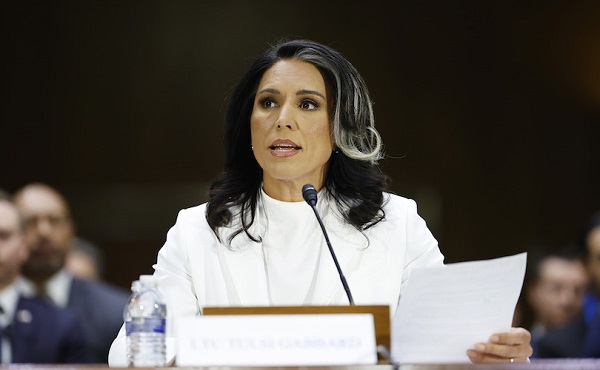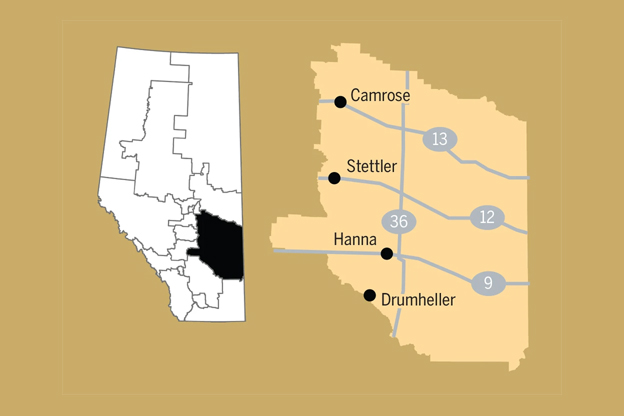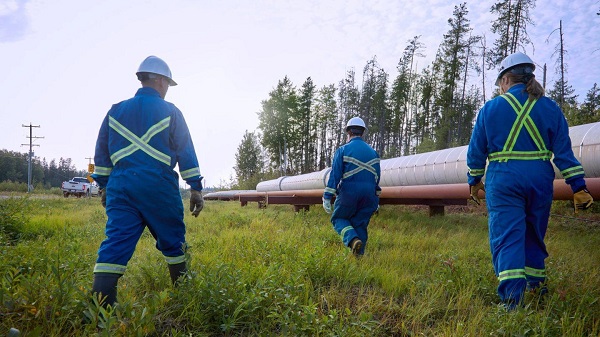Alberta
Alberta remains largest net contributor to Ottawa’s coffers despite damaging federal policies

From the Fraser Institute
By Tegan Hill and Spencer Gudewill
According to a recent poll by the Angus Reid Institute, nearly half of Albertans believe they get a “raw deal”—that is, they give more than they get—being part of Canada. It’s easy to see why Albertans are frustrated. Despite the province’s crucial role in the federation, the federal government continues to inflict restrictive and damaging policies on the Albertan economy.
The Trudeau government’s list of policies includes Bill C-69 (which imposes complex, uncertain and onerous review requirements on major energy projects), Bill C-48, (which bans large oil tankers off British Columbia’s northern coast and limits access to Asian markets), the oil and gas emission cap, the “clean fuel standard,” numerous “net-zero” targets that disproportionately impact Alberta, and so on. Not surprisingly, the same poll found that 65 per cent of Albertans believe federal government policies have hurt their province’s economy.
What’s less clear is why the federal government wants to thwart Alberta’s economic engine, considering how much the province contributes to the federation financially. In our current system of federalism, Ottawa collects various taxes then redistributes money to Canadians in other provinces for federal programs including equalization, the Canada Pension Plan (CPP) and employment insurance.
According to a new study published by the Fraser Institute, from 2007 to 2022 (the latest period of available data), Albertans contributed $244.6 billion more in taxes and other payments to the federal government than they received in federal spending—more than five times as much as British Columbians or Ontarians. The other seven provinces received more federal dollars than they contributed to federal revenues. In other words, Alberta is by far the largest net contributor to Ottawa’s coffers.
Alberta’s large net contribution reflects its comparatively young population (fewer retirees), higher rates of employment, higher average incomes and relatively strong economy. Alberta has a history of punching above its weight economically. For perspective, from 1981 to 2022, the province had the highest annual average economic growth rate in Canada. And despite dips in growth due to the 2014 oil-price collapse and COVID, in 2022 Alberta accounted for 17.9 per cent of Canada’s total economic growth despite being home to just 11.6 per cent of the country’s population.
It’s a similar story for business investment per private-sector worker (in 2022, Alberta’s level more than doubled the non-Alberta average among provinces) and private-sector job growth with Alberta contributing nearly one in every five private-sector jobs created in Canada in 2022.
Alberta’s prosperity, which helps fuel federation, may help explain why in 2022 56,245 more Canadian residents moved to Alberta than left it—a much higher net inflow than in any other province. For decades, Alberta has provided economic opportunities for Canadians from other provinces willing to relocate.
Finally, without Alberta’s large net contribution to the federal government’s bottom line, Ottawa would have significantly larger budget deficits. In 2022, for instance, without Alberta the Trudeau government’s $25.7 billion budget deficit would have ballooned to $39.9 billion. The larger the deficit (all else equal) the greater the debt accumulation, which Canadians must ultimately finance through their taxes.
When Alberta’s economy is strong and prosperous, it benefits all of Canada. And due to Alberta’s economic success, Albertans continue to contribute relatively more to the federation than Canadians in other provinces. That’s something the federal government should encourage, not discourage.
Authors:
Alberta
Alberta’s move to ‘activity-based funding’ will improve health care despite naysayer claims

From the Fraser Institute
After the Smith government recently announced its shift to a new approach for funding hospitals, known as “activity-based funding” (ABF), defenders of the status quo in Alberta were quick to argue ABF will not improve health care in the province. Their claims are simply incorrect. In reality, based on the experiences of other better-performing universal health-care systems, ABF will help reduce wait times for Alberta patients and provide better value-for-money for taxpayers.
First, it’s important to understand Alberta is not breaking new ground with this approach. Other developed countries shifted to the ABF model starting in the early 1990s.
Indeed, after years of paying their hospitals a lump-sum annual budget for surgical care (like Alberta currently), other countries with universal health care recognized this form of payment encouraged hospitals to deliver fewer services by turning each patient into a cost to be minimized. The shift to ABF, which compensates hospitals for the actual services they provide, flips the script—hospitals in these countries now see patients as a source of revenue.
In fact, in many universal health-care countries, these reforms began so long ago that some are now on their second or even third generation of ABF, incorporating further innovations to encourage an even greater focus on quality.
For example, in Sweden in the early 1990s, counties that embraced ABF enjoyed a potential cost savings of 13 per cent over non-reforming counties that stuck with budgets. In Stockholm, one study measured an 11 per cent increase in hospital activity overall alongside a 1 per cent decrease in costs following the introduction of ABF. Moreover, according to the study, ABF did not reduce access for older patients or patients with more complex conditions. In England, the shift to ABF in the early to mid-2000s helped increase hospital activity and reduce the cost of care per patient, also without negatively affecting quality of care.
Multi-national studies on the shift to ABF have repeatedly shown increases in the volume of care provided, reduced costs per admission, and (perhaps most importantly for Albertans) shorter wait times. Studies have also shown ABF may lead to improved quality and access to advanced medical technology for patients.
Clearly, the naysayers who claim that ABF is some sort of new or untested reform, or that Albertans are heading down an unknown path with unmanageable and unexpected risks, are at the very least uninformed.
And what of those theoretical drawbacks?
Some critics claim that ABF may encourage faster discharges of patients to reduce costs. But they fail to note this theoretical drawback also exists under the current system where discharging higher-cost patients earlier can reduce the drain on hospital budgets. And crucially, other countries have implemented policies to prevent these types of theoretical drawbacks under ABF, which can inform Alberta’s approach from the start.
Critics also argue that competition between private clinics, or even between clinics and hospitals, is somehow a bad thing. But all of the developed world’s top performing universal health-care systems, with the best outcomes and shortest wait times, include a blend of both public and private care. No one has done it with the naysayers’ fixation on government provision.
And finally, some critics claim that, under ABF, private clinics will simply focus on less-complex procedures for less-complex patients to achieve greater profit, leaving public hospitals to perform more complex and thus costly surgeries. But in fact, private clinics alleviate pressure on the public system, allowing hospitals to dedicate their sophisticated resources to complex cases. To be sure, the government must ensure that complex procedures—no matter where they are performed—must always receive appropriate levels of funding and similarly that less-complex procedures are also appropriately funded. But again, the vast and lengthy experience with ABF in other universal health-care countries can help inform Alberta’s approach, which could then serve as an example for other provinces.
Alberta’s health-care system simply does not deliver for patients, with its painfully long wait times and poor access to physicians and services—despite its massive price tag. With its planned shift to activity-based funding, the province has embarked on a path to better health care, despite any false claims from the naysayers. Now it’s crucial for the Smith government to learn from the experiences of others and get this critical reform right.
Alberta
Charges laid in record cocaine seizure

From ALERT – The Alberta Law Enforcement Response Team
Five suspects have now been charged in relation to a major cocaine seizure that took place in Edmonton last year. In April 2024 $3 million worth of cocaine and other drugs was seized.
ALERT Edmonton’s organized crime team, in consultation with Alberta Crown Prosecution Service, was able to arrest and lay charges against five suspects on April 21, 2025. The charges are wide-ranging and include participation in the activities of a criminal organization, conspiracy to traffic drugs, drug trafficking, and money laundering.
“Following last year’s drug seizure, our investigative team was able to conduct a thorough investigation and identify the suspects responsible. We now have significant charges put before the courts in the hopes of holding this organized crime group accountable,” said Insp. Angela Kemp, ALERT Edmonton.
The drug seizure was initially announced by ALERT on May 6, 2024. At 27 kilograms of cocaine, it was highlighted as the largest cocaine seizure by ALERT in Edmonton.
The seizure took place on April 30, 2024 when a search warrant was executed at a west Edmonton home in the Lewis Estates neighbourhood.
ALERT alleges that the suspects are part of an organized crime group that was involved in drug trafficking in the Edmonton region, and had also supplied drugs to Grande Prairie and Saskatchewan. ALERT received assistance on the investigation by the Edmonton Police Service and RCMP Federal Policing Northwest Region.
The following suspects were charged:
- Jeffrey Vil, a 45-year-old from Edmonton, is charged with participation in activities of a criminal organization, commission of an offence for a criminal organization, conspiracy to traffic drugs, conspiracy to possess drugs for the purpose of trafficking, possession of drugs for the purpose of trafficking, laundering proceeds of crime, possession of proceeds of crime, and possession of a prohibited device.
- Tommy Szeto, a 35-year-old from Edmonton, is charged with participation in activities of a criminal organization, commission of an offence for a criminal organization, conspiracy to traffic drugs, conspiracy to possess drugs for the purpose of trafficking, possession of drugs for the purpose of trafficking, and laundering proceeds of crime.
- Tayler Fraser, a 27-year-old from Edmonton, is charged with is charged with participation in activities of a criminal organization, commission of an offence for a criminal organization, conspiracy to traffic drugs, and conspiracy to possess drugs for the purpose of trafficking.
- Christian Barwise, a 35-year-old from Edmonton, is charged with drug trafficking.
- Adrian De Guzman, a 27-year-old from Edmonton, is charged with drug trafficking.
The suspects were released from custody and are scheduled to appear in court on May 22, 2025.
Members of the public who suspect drug or gang activity in their community can call local police, or contact Crime Stoppers at 1-800-222-TIPS (8477). Crime Stoppers is always anonymous.
ALERT was established and is funded by the Alberta Government and is a compilation of the province’s most sophisticated law enforcement resources committed to tackling serious and organized crime.
-

 Alberta2 days ago
Alberta2 days agoBonnyville RCMP targeted by suspect driving a trackhoe – Update
-

 Daily Caller2 days ago
Daily Caller2 days agoMisguided Climate Policies Create ‘Real Energy Emergency’ And Permit China To Dominate US
-

 Business2 days ago
Business2 days agoAfter successful anti-American election campaign, Carney pivots to embrace US: Hails Trump as a “transformational president”
-
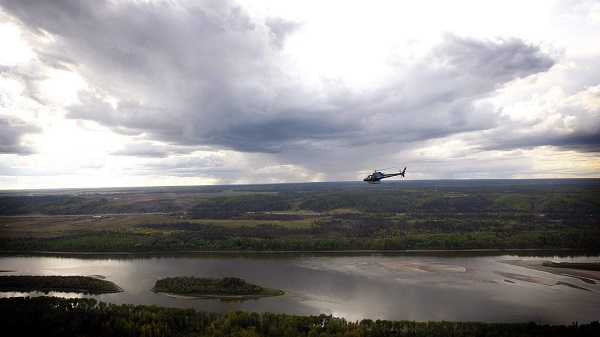
 Alberta1 day ago
Alberta1 day agoEnergy projects occupy less than three per cent of Alberta’s oil sands region, report says
-

 Alberta1 day ago
Alberta1 day agoCharges laid in record cocaine seizure
-
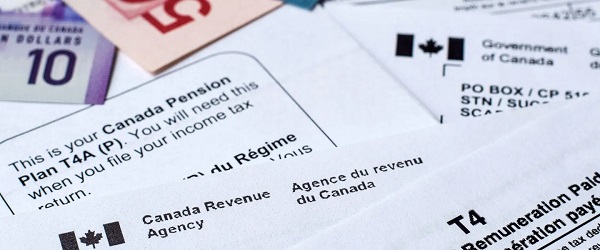
 Business2 days ago
Business2 days agoReality check—Canadians are not getting an income tax cut
-

 COVID-191 day ago
COVID-191 day agoStudy finds nearly half of ‘COVID deaths’ had no link to virus
-
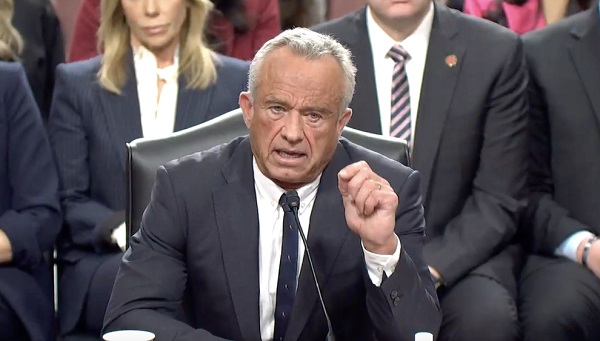
 Autism20 hours ago
Autism20 hours agoNIH, CMS partner on autism research




